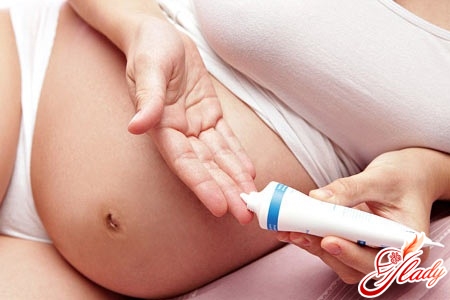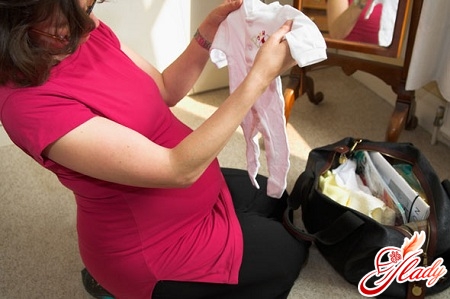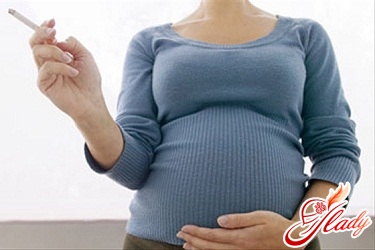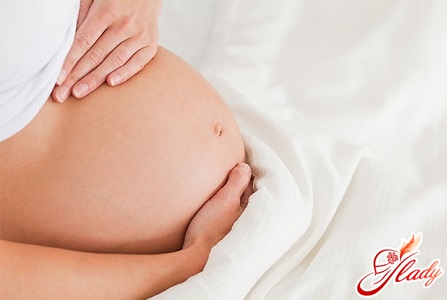
Pregnancy time - responsibleperiod in the life of the mother and baby. The health of the woman, her mental state lay the foundation for the health and psyche of the future child. That is why it is so important to pay close attention to any sensations, pain or heaviness. The feeling of discomfort, when the lower abdomen hurts or pulls, occurs in many women quite often during pregnancy. Sometimes pain can be a signal of pathology in the development of pregnancy. Abdominal pain during pregnancy can indicate hypertonicity of the uterus and the threat of miscarriage. How dangerous for the health of the future child are lower abdominal pains during pregnancy? And what to do when the stomach aches, muscles hurt or colic appears?
Physiological changes in the period of pregnancy
Pain is a signoverexertion. The beginning of pregnancy stimulates hormonal changes in the body, as a result of which the uterus and mammary glands begin to enlarge. The volume of circulating blood increases, its chemical composition changes, the pulse quickens. The network of blood vessels in the lower abdomen and chest expands. The ligaments and muscles of the abdomen prepare for the loads, they soften in the first weeks of pregnancy and then, as the abdomen grows, they stretch and thicken. The pelvic organs shift and are compressed. Because of this, the expectant mother has to eat small portions. Intestinal peristalsis is difficult, constipation and colic appear. The most active restructuring occurs in the first 16 weeks of pregnancy. The following ailments may occur: drowsiness, sweating, nausea or heartburn, pain in the lower abdomen, colic and constipation. Almost every woman has a pulling sensation in the lower abdomen during pregnancy. Periodically, short-term mild pain in the abdomen appears during pregnancy. Physiological changes in a woman's body during pregnancy are associated with the growth of the baby; they are normal and natural.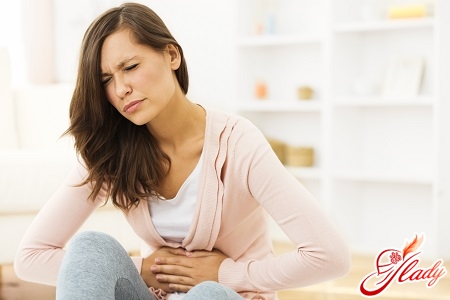
Why does the abdomen hurt during pregnancy?
Causes of pain during pregnancyare conventionally divided into obstetric and non-obstetric. Obstetric pain in the lower abdomen includes pathologies that cause miscarriage or placental abruption. Non-obstetric pain includes all the rest: colic in the lower abdomen, pain from constipation and flatulence, pain from stretching of the ligaments, aching sensations from the abdominal muscles, moderate pain in the perineum and in the lower abdomen from the divergence of the pelvic bones. Knowing the causes of discomfort will help you understand whether your stomach hurts during pregnancy due to a change in physiology or from overload. The list of reasons that can cause pain in the lower abdomen during pregnancy is as follows:
Most often during pregnancy there is a pulling, tugging sensation,aches at the beginning (first and second months) and at the end (eighth and ninth, prenatal). The growing belly during pregnancy becomes noticeably heavy only after the seventh month. In the middle of gestation (from the third to the seventh month), the woman's sensations stabilize, become comfortable and acceptable. If you doubt the cause of the pain, cannot determine why you are bothered by discomfort, consult a doctor.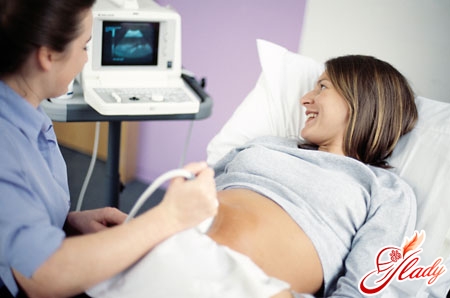
What to do to reduce the pain in the lower abdomen
- Diet should ensure the digestivesystem. Obligatory for the work of intestinal motility is vegetables and fruits, nuts. Sour-milk products will provide the necessary microflora and enzymes for digesting food, prevent the appearance of colic. Sufficient use of liquid (not excessive and not lean) maintains the necessary water balance. It is necessary to know that the lack and limitation of drinking water initiates in the body the processes of fluid storage and subsequent swelling. It is necessary to limit fats, carcinogens, coffee, muffins and sweets. The simpler and more natural will be the diet of the future mother, the better for her own health and the health of the growing baby.
- Available physical activity, gymnastics andSpecial exercises for stretching the muscles of the perineum and ligaments. Why is it important to perform gymnastics and prepare the body for delivery with special exercises? Because pregnancy is not a disease, it is a normal physiological condition for the woman's body. Therefore, the average physical load is not that desirable, it is necessary. To the exercises that help prepare the body for childbirth, include various stretches, slopes, butterfly poses, fish:
- Walking and available walking loads stimulateblood flow, improve the supply of oxygen to all organs of the mother's body and the placenta. At the same time, the process of elimination of toxins is accelerated. It has been found that the most painful sprains of ligaments occur in women of inactive, leading inactive way of life. To prevent a condition when leg muscles ache, pedestrian loads should be daily.
- Avoid negative experiences. Try to reduce or remove psychological complexes. Why is it so important to keep track of your experiences and emotions? The human body is an integral structure, consisting of physical matter and information. Any emotions and thoughts are reflected in bodily sensations. Fear, anger, resentment, irritation, anger and envy cause spasm, contraction of the muscles of any organs, hands, legs, face and, of course, during pregnancy, pelvic and abdominal muscles. The compression and overstrain of the muscles in the lower abdomen squeezes the blood vessels of the circulatory system, supplying the baby with food and oxygen. As a result of my mother's emotions, the child receives a physiological blow in the form of prolonged oxygen starvation.
Means to relieve pain in the abdomen during pregnancy
If you have realized that the pain in the lower abdomen is not increasing and is not periodic, and is caused by physiological changes in your body, you can use some means to calm it down:
- A warm bath will help you relax and relieve muscle tension.
- Rest, relaxation, lying position.
- The bandage reduces stretching of the abdominal muscles and reduces pain.
When the pain in pregnancy in the lower abdomen becomes dangerous?
It is important to know that it is of great importancethe intensity of pain in the lower abdomen and the frequency of its sensation. A feeling of heaviness, when the lower abdomen is pulled, intensifying and developing into obvious pain in the lower abdomen, should be alarming. Pain in the lumbar region, encircling pain and pulling sensations in the pelvic area may appear. The appearance of periodicity in pain in the lower abdomen will be a particularly alarming factor. Such signs often signal a possible or already started miscarriage or premature birth. Pain and colic in the lower abdomen may be accompanied by bloody mucus discharge. Urgent medical care is needed to save the baby.
Instead of an afterword
Discomfort, pain, colic, feeling of heaviness notare a definite pathology of pregnancy. It doesn’t matter whether the stomach hurt during pregnancy, whether it was pulled, these sensations are transferred and quickly forgotten with the birth of the baby and the emergence of new joyful concerns.






